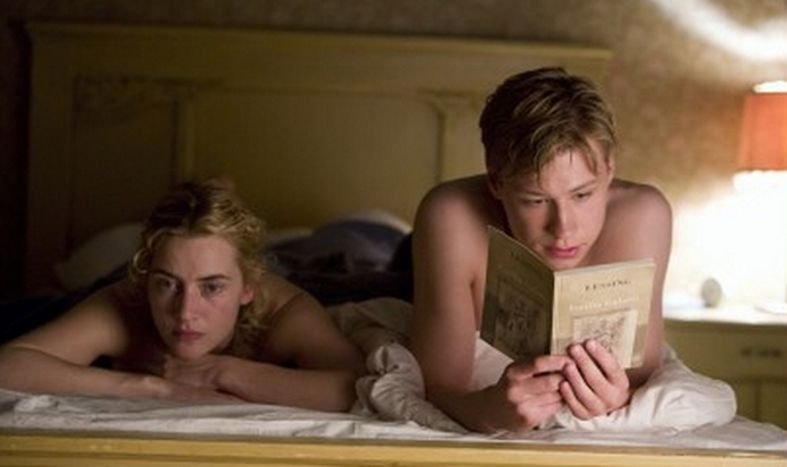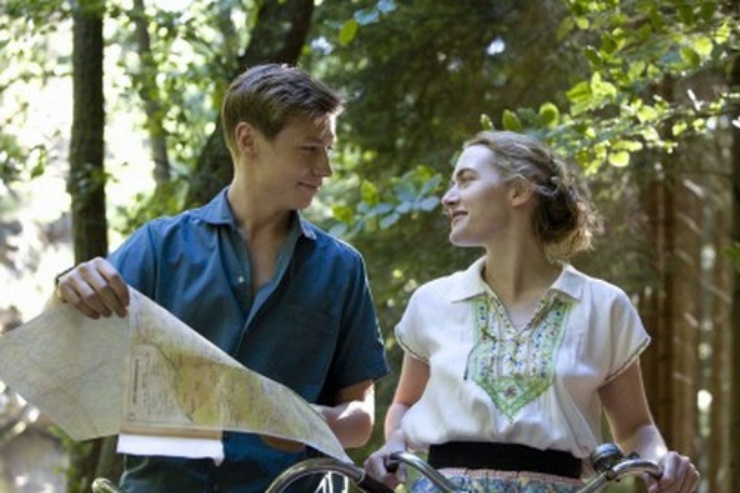
The Reader: Germany’s Nazi past a festival highlight
Published on
Translation by:
Agnes EmriStephen Daldry's stirring film is an attempt to ethically approach taking responsibility for the Holocaust crimes which is ingeniously intertwined with the story of ill-fated love. The phenomenal Kate Winslet picked up a BAFTA on 8 February to add to her Golden Globe for her role as Hanna Schmitz
In the beginning, director Stephen Daldry's (The Hours, Billy Elliot) The Reader is a story of the relationship between an adult woman and a teenage boy. Against all odds, Hanna Schmitz (Kate Winslet) and Michael Berg (David Kross) try to make the most of the short moments given to them by destiny. 'It is a love story, I thought after reading the book,' said Kate Winslet after the screening on 6 February, speaking about the adaptation of German writer Bernhard Schlink’s bestselling novel. It was one of the most anticipated screen adaptations of the 2009 Berlin film festival.
Hanna’s shameful secret
The passionate rendezvous, baths and trips do not lead to the traumatic ending. It is Hanna’s shameful secret and Michael’s idealism that stand in the way of this couple’s happiness.
The film becomes darker: we are witnessing the trial of six women. One of the ex-guards of the Auschwitz concentration camp is the now 43-year-old Hanna Schmitz. The trial is being followed by law students, including the young Michael Berg. Meeting his lover, who disappeared without notice a few years earlier, is a shock that Michael is unable to deal with. Accused of killing 300 Jewish prisoners of Auschwitz, Hanna prefers to plead guilty, rather than to reveal that she is illiterate, which would influence the judge to change the verdict. Only after being sentenced to life imprisonment does she start realising the immensity of the harm she has done and the fact that she will never manage to redeem herself.

As the professor explains to his students, the trial is not about deciding if the crimes of the Holocaust were bad, but about deciding if they were in accordance with the laws of the time. The young lawyers cannot agree with such a narrow interpretation of the question of responsibility – they would prefer to single out the guilty persons and to punish them severely. The problem is whether it is possible at all. Guilt and shame are two main questions brought up in the film. As shown by Hanna’s story, maybe they concern the following generations of Germans, who, in spite of trying, are not able to deal with their history. The decision to show this specific film at the Berlinale - it is not running in the official competition - proves the great engagement and courage of the festival organisers.
Kate Winslet: an Oscar in reach
Kate Winslet is outstanding in the role of Hanna. With the portrayal of the complex psyche of her heroin she confirmed her talent once again. 'For me it was a very complicated experience. I felt a huge responsibility to show a difficult balance between the unbelievable shame Hanna feels and the guilt she learned in prison. I did also know I had to make her a human being, a woman,' the British star said.
Ralph Fiennes, who plays her partner in a few scenes, is not astounding, but the screenplay has not given him too many chances to be so. The youngest of the crew, the 18-year-old David Kross, takes on his role very well. The singularity of this film lies in showing the tragic nature of the war and of the Holocaust not from the point of view of the victims, but of one of perpetrators. The Reader is not a simple, one-dimensional film - it requires the viewer’s engagement and focus.
More from the Berlin Film Festival, reviews and news from the red carpet on our Berlinale blog
Translated from The Reader: Jak mogliśmy na to pozwolić? – bolesne pytania na Berlinale



